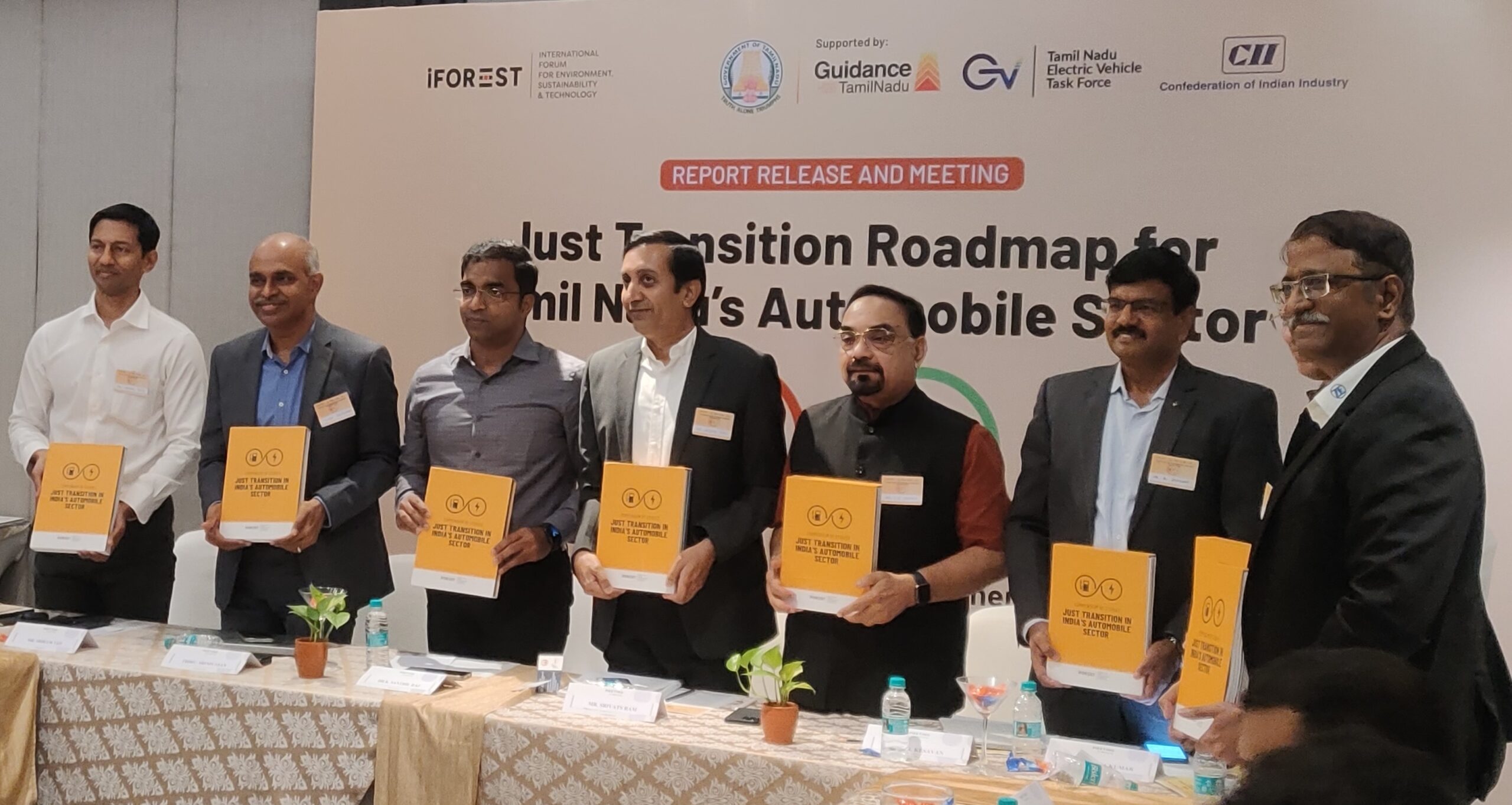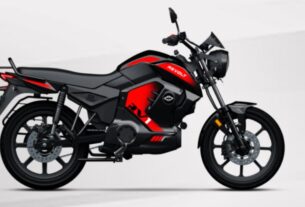The International Forum for Environment, Sustainability and Technology (iFOREST), a non-profit environmental think tank, released the first comprehensive study titled “ICE to EV: Just Transition Roadmap for India’s Automobile Sector” in association with Confederation of Indian Industry (CII) today. This national study is supplemented by six in-depth research reports on components, enterprises, clusters, and workforce of the impacts of the EV transition on India’s automobile businesses, workers, and the environment.

The report was launched by Dr K Senthil Raj (IAS), Managing Director, SIPCOT, Tamil Nadu, Mr Srivats Ram, Chairman, CII Tamil Nadu & Managing Director, Wheels India, Thiru Srinivasan, Senior Advisor, EV, FaMe TN, Government of Tamil Nadu, Mr Sriram Viji, Chairman (Southern Region). ACMA & Managing Director, Brakes India, and Mr T R Kesavan, President, The Madras Chamber of Commerce and Industry & Group, President, TAFE.
The report highlighted Hosur, one of the auto clusters in Tamil Nadu delving into the challenges and opportunities of transition to EVs for businesses, workers, and the environment at large. An analysis of 759 auto component manufacturers in the Hosur cluster showed that about 20 percent would be highly or moderately impacted by the transition. Most of these enterprises produce parts for ICE powertrain sub-assemblies. Further, of the 759 enterprises, MSMEs constitute 95%. These enterprises remain particularly vulnerable, given their limited financial resources and capacity for technology adoption.
The report further stated that Tamil Nadu, India’s EV automobile hub, remains a front-runner in the EV transition thanks to the supportive State EV Policy, a conducive business environment, and a focused MSME sector.
Extracts from the report state, “Depending on the vehicle type, 45-84% of parts of the internal combustion engine (ICE) vehicle, primarily powertrain components, will become obsolete due to the electric vehicle (EV) transition, impacting the manufacturers of such components. The number of job roles in the EV ecosystem will be 5% higher than in the ICE vehicle ecosystem and require more educated and skilled workers. Jobs in the PV manufacturing sector alone will double from 1.7 million in 2023-24 to 3.3-3.7 million in 2036-37,”.
The report proposes a comprehensive ‘Just Transition Policy Framework for the Automobile Sector highlighting 8 key inter-related policy aspects. Some of the key policies that the Framework highlights include are:
- Policies and investments to make Tamil Nadu an electronic and electrical hub.
- Fiscal policies to support OEMs and ACMs for adopting green manufacturing practices.
- Policies to strengthen skilling and reskilling measures aligned to the EV ecosystem.
- Developing a dedicated “Skill Development Fund” to support informal workers and low-skilled workers.
- Mandating the development of a Workforce Transition Plan by OEMs to strengthen enterprise-level action.
- Instituting a Right to Repair and Servicing Policy to reduce the vulnerability of workers engaged in servicing and repairing.
- A Cluster Plan will be essential for each auto cluster to reduce its vulnerability and support a well-coordinated transition.
- Cooperative efforts by the state government, district administration and agencies, industry bodies, skilling agencies, and research institutions towards a clean mobility transition.
While inaugurating the event, Mr V Arun Roy, IAS, Secretary Industries, Government of Tamil Nadu, said, “We are actively developing a strategy to cater to the increasing electricity demand not only from the mobility sector but also related to the greater development of Tamil Nadu. We are also focusing on conventional power sources, green power sources as well as importing power to complement the domestic generation,”.
Mr Senthil Raj, Managing Director, SIPCOT, said, “Apart from reforms brought in to help in land acquisitions, there is a single window guidance system to fast-track other clearances for companies manufacturing EVs in Tamil Nadu,”.
Mr Srivats Ram, Chairman, CII Tamil Nadu & Managing Director, Wheels India Ltd. said, “Awareness and communication are the key to bridge the gap between policy formulation and its implementation,”.





